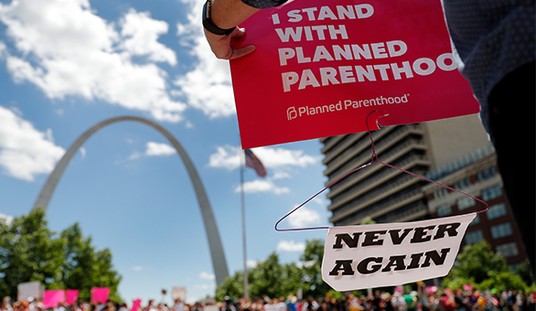The political numbers tell a grim story. In five decades of closely following American politics, I have never seen the Democratic Party in worse shape. Democrats trail in polls in 11 of the 18 Democratic-held Senate seats up this fall and lead in polls in none of the 18 Republican-held seats.
Republicans currently lead Democrats in most generic polls -- which party's candidate will you support for the House of Representatives? -- even though Democrats have almost always held the lead since Gallup began asking the question in 1950. Incumbents usually lead in individual House race polls. But polls have shown Democratic incumbents trailing Republican challengers in Arkansas, Indiana, Massachusetts and North Dakota.
Of course opinion can change, and the balance of enthusiasm, which currently favors Republicans, could shift. But if the election were held today, the numbers tell me that Democrats would fare worse than they have in every election since 1946.

But if I have never seen the Democratic Party in worse shape, I have seen the Republican Party in better shape -- in 1972 (when Richard Nixon unaccountably failed to boost his party), at various points in the 1980s and 1990s, in 2002 and 2004, when enthusiasm for George W. Bush eluded most political reporters but showed up in the election returns.
The numbers suggest that the Republicans could well wind up with a majority of House seats next year, and perhaps more than they had at any time between 1994 and 2006. And they could even wind up with a majority of Senate seats, as well, though that would require winning all the currently close races and maybe a couple more.
In that case, they may find themselves asking the question the Robert Redford character asked at the end of the movie "The Candidate:" "What do I do now?"
Recommended
Public opinion points them in a direction that could be politically dangerous. Most Americans are dismayed at the big government programs of the Obama administration and the Democratic congressional leadership. They are upset by the specter of federal budget deficits that threaten to double the national debt as a percentage of the gross domestic product.
That means that Republican majorities would have a mandate to cut spending sharply. But spending cuts can be politically perilous.
Some cuts are obvious. A Republican Congress would not channel billions to state and local governments to bail out public employee unions, as the 2009 stimulus package did and the House's current "jobs" bill would.
A Republican Congress could take up the suggestion of recently appointed Florida Sen. George LeMieux to cut spending back to 2007 levels. The 2009 stimulus package raised the budget baselines of many domestic programs. They could be cut back again.
But beyond that loom the problems of ever-expanding entitlements: Social Security, Medicare, Medicaid. Rep. Paul Ryan has advanced a "road map" to cut spending by means-testing benefits, replacing Medicare with vouchers to pay for health insurance for beneficiaries currently under age 55 and providing refundable tax credits for health insurance premiums for the non-elderly. It would allow but not require employees under 55 to set up personal retirement accounts in place of the current Social Security program.
Barack Obama has called Ryan's road map interesting, but there's zero chance he would support it -- in which case Republican congressional leaders would probably be unwilling to advance such substantial changes, which are already under attack by Democrats.
But there is a case for boldness. The architects of George W. Bush's victory in 2004 and of Barack Obama's victory in 2008 dreamed of establishing permanent governing majorities for their parties. But as political scientist David Mayhew has argued, and as the events following those victories suggest, a permanent majority is a will o' the wisp.
Better to put into place public policies that will be enduring as party majorities come and go. This is what the Republican Congress elected in 1946 did: It repealed wartime wage and price controls, it revised labor law to reduce unions' powers, and it provided bipartisan support for Harry Truman's Cold War policies. Democrats won back congressional majorities in 1948, but Republicans' policies stayed in place, shaping prosperous postwar America.
Americans have rejected the Europeanizing policies of the Obama Democrats. Republicans may get a chance to put us on a better American path. They need to be prepared to do so.

























Join the conversation as a VIP Member